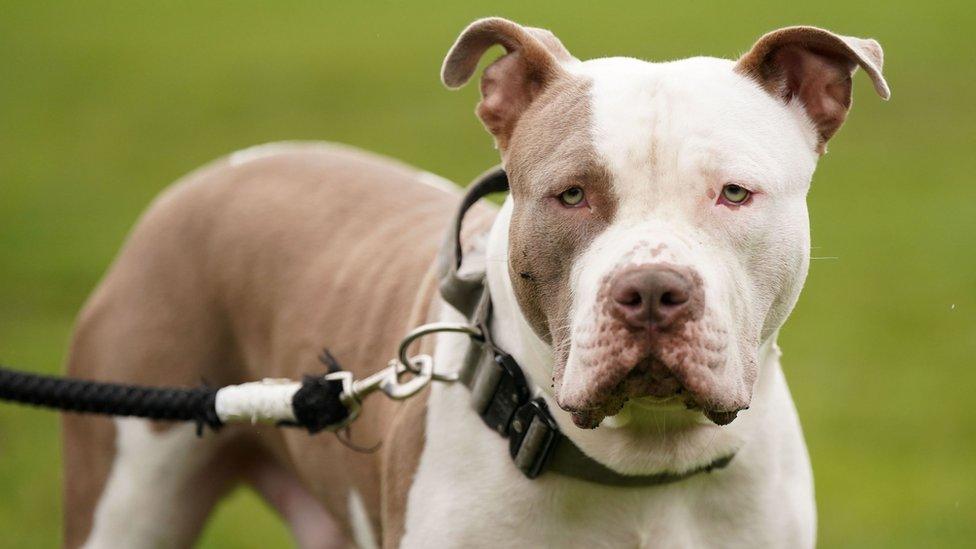XL bully ban: Police chief warns of challenges in enforcing law
- Published
- comments
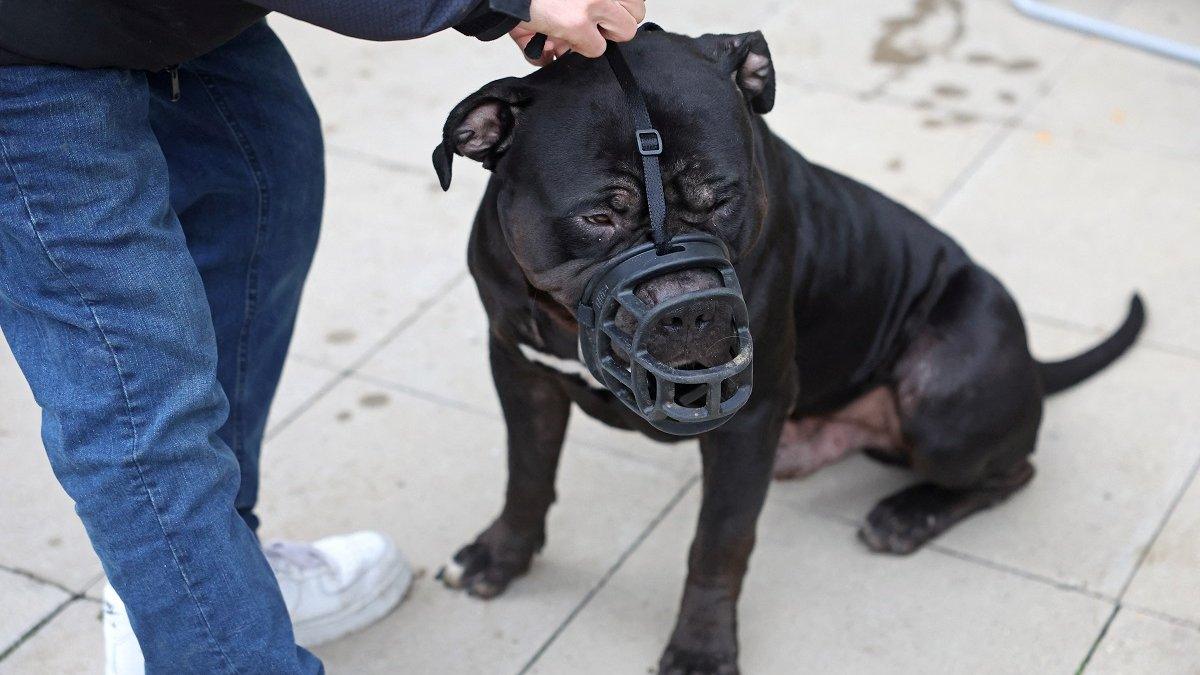
XL bully Duke is muzzled by his owner last month ahead of the ban
A police chief has warned the XL bully dog ban, which began overnight, poses "logistical challenges" for officers.
Mark Hobrough, from the National Police Chiefs' Council (NPCC), said the ban could spark higher demand for kennel space before court decisions.
An expert on dangerous dogs fears the ban will also compound an existing shortage of trained officers.
The government says police will be supported and officers given extra training to identify XL bullies.
New laws banning the breed in England and Wales take effect from Thursday.
For some months, owners have been able to apply for an exemption certificate if they can prove their dog had been neutered before a specific date.
They were also required to pay an application fee, hold liability insurance for their dog, and ensure it was microchipped.
More than 35,000 dogs are now registered for exemption but those owners without could face a criminal record and unlimited fine.
The RSPCA has said tens of thousands of XL bullies may not have certificates with the estimated total in the UK ranging from 50,000 to 100,000.
XL bullies that are seized under the new law will be taken to kennels before a court decides they should either be destroyed or deemed safe.
Mr Hobrough, an assistant chief constable, said police forces were "actively looking to enhance" the numbers kennels can hold to cope with expected higher demand and "logistical challenges" for officers.
The government said ministers met police chiefs this week to discuss their preparations.
'Something will have to give'
Debbie Connolly, a dog behaviourist who acts as an expert witness in dangerous dog court cases, said she feared the ban would be difficult to enforce.
She said it would "compound" the existing problems caused by the small numbers of officers trained specifically on dog legislation, and a lack of kennel space.
"If officers are now told to go out and look for unmuzzled XL bullies, something will have to give," Ms Connolly told the BBC.
There are 137 dog legislation officers across the country, with at least one in every force.
The Department for Environment, Food and Rural Affairs, which is responsible for animal welfare, said these officers will be given extra training to help successfully identify the XL bully breed.
Ms Connolly said there had been an "endless influx" of people asking her training firm SafePets UK, for help over the last two or three weeks.
She said "hundreds" of pictures of dogs have been sent in and "the worrying part is a good 90% of them we didn't think were XL dogs".
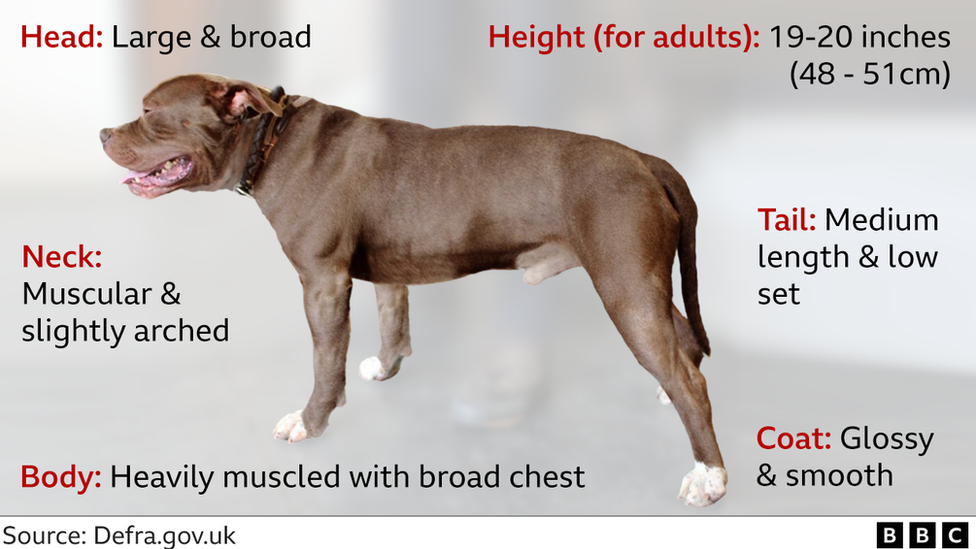
Certain criteria have to be met for a dog to be classed as an XL bully
"You have to wonder how many of the dogs exempted are actually XL bullies," Ms Connolly said.
Dr Elizabeth Mullineaux, from the British Veterinary Association, said the ban would not work as "all dogs that are not well-trained, well-kept and well-socialised have the ability to be aggressive".
Speaking to BBC Radio 4's Today programme, she reiterated calls for more resources and trained officers for the police.
"A lot of the really awful fatal attacks have actually been in people's houses," Dr Mullineaux added.
"What's happening today will not stop those because dogs won't be muzzled in people's houses."
Radio presenter DJ Spoony, whose Xl bully dog Prince is nearly two years old, said he was sceptical at how effective the ban would be, adding he would prefer a licence system to ensure owners of all dog breeds did not mistreat them.
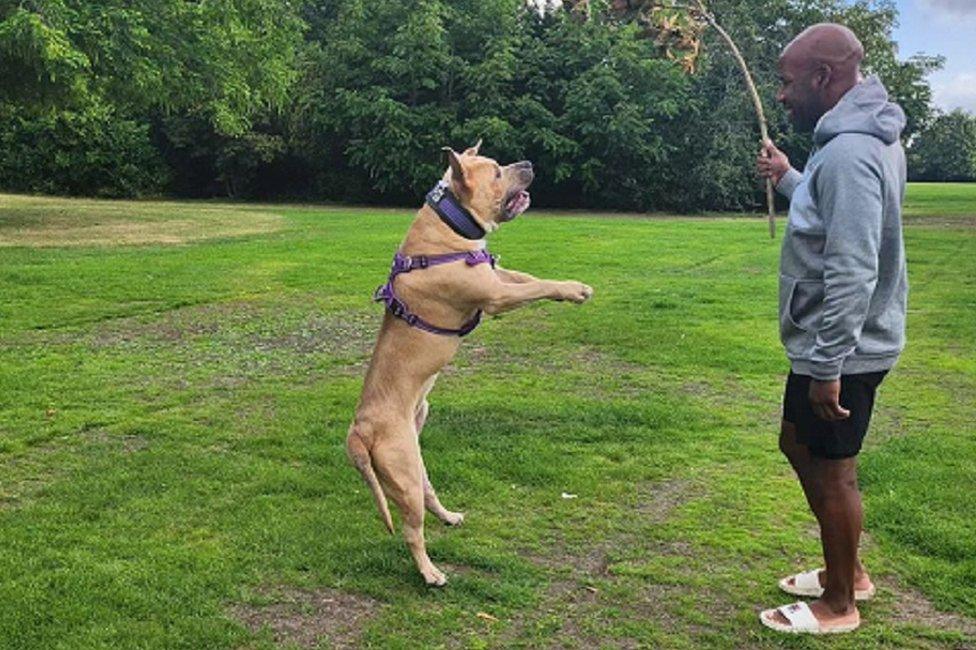
DJ Spoony, pictured with his dog Prince before the ban took effect, questions how effective it will be
"Just to keep banning a particular breed is like kicking the problem down the road," he told BBC Radio 5 Live.
"It's always going to come back to responsible owners. And as long as there are irresponsible owners, there will always be dog attacks."
Mr Hobrough, from the NPCC, said illegal XL bully owners must comply with officers as their behaviour may influence how the court decides the case.
Courts look at whether both dogs and owners are aggressive and would have "no option but to destroy the dog" if either wasn't complied with, he said.
Officers who are met with resistance would take "proportionate action with minimum use of force" to seize dogs, Mr Hobrough added.
The government banned the XL bully after a rise in fatal dog attacks.
Before 2021 there were about three dog attack deaths per year but there have been 23 since, with the XL bully "disproportionately involved".
In September, Ian Price died after being attacked by two suspected American XL bully dogs in Stonnall, near Walsall, while Jack Lis, a 10-year-old boy, was killed by an American XL bully in Caerphilly in 2021.
Environment Secretary Steve Barclay said: "We have delivered our pledge to bring in this important measure to protect public safety, and we expect all XL bully owners to comply with the strict conditions."
Restrictions on XL bully dogs were announced on Wednesday for Scotland and will start to take effect from 23 February with exemption certificates needed from 31 July.
A decision on whether to ban the dogs in Northern Ireland is expected shortly.
XL bullies registered as exempt must be microchipped, kept on a lead and muzzled in public and be neutered to comply with the exemption rules.
Owners who have missed the 31 January registration deadline are encouraged to contact their local police force if they think their dog is an XL bully.
Related topics
- Published31 January 2024
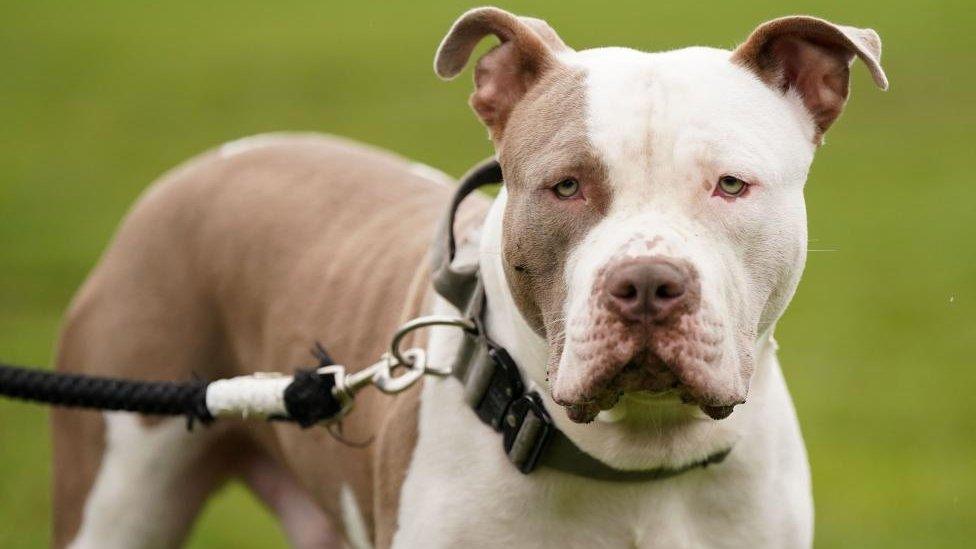
- Published30 January 2024
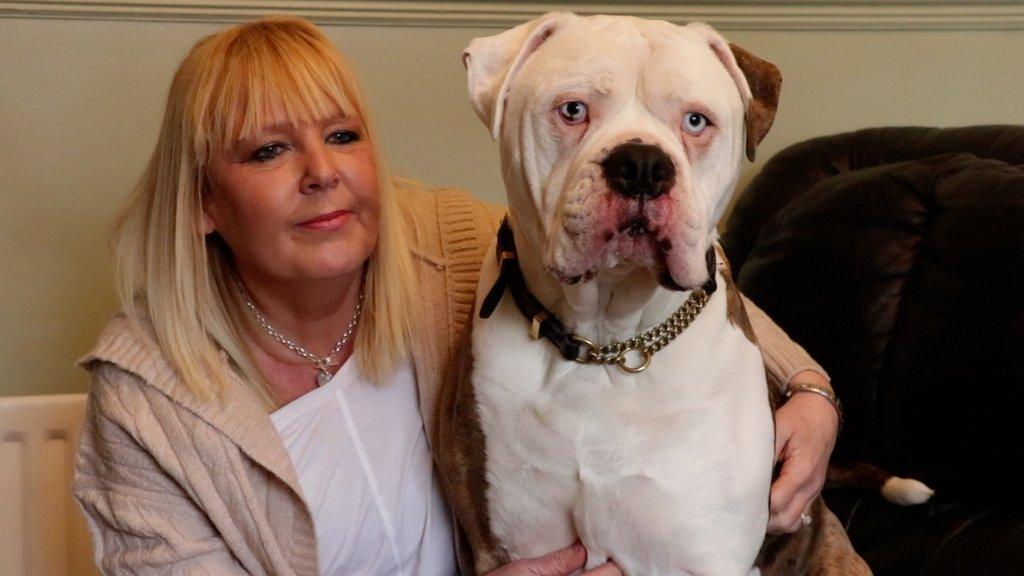
- Published31 January 2024
